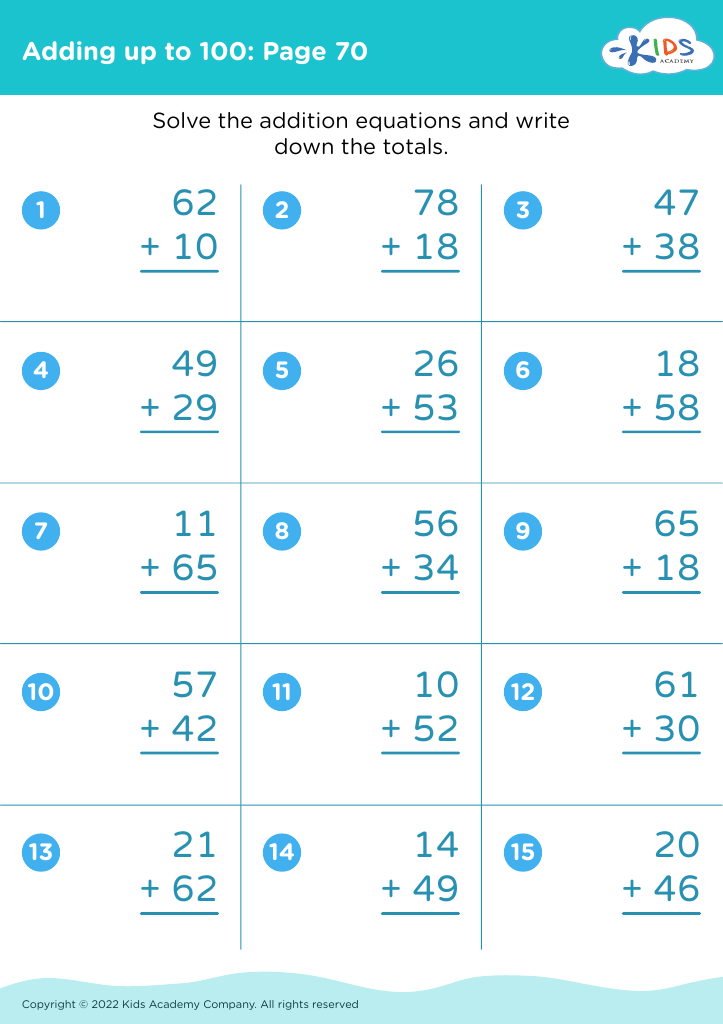Shape identification Adding up to 100 Worksheets for Ages 6-8
3 filtered results
-
From - To
Discover our engaging "Shape Identification Adding Up to 100" worksheets, specially designed for children ages 6-8. These interactive resources foster essential math skills while helping young learners recognize and categorize various shapes. With a focus on enhancing understanding through fun exercises, students will practice adding numbers to reach 100 while building their spatial awareness. Our worksheets encourage critical thinking and problem-solving, making learning enjoyable and effective. Perfect for both classroom and at-home learning, these printables are an invaluable tool for nurturing a solid foundation in math and geometry. Explore and empower your child's learning journey today!
Shape identification and addition skills are fundamental components of early mathematics education for children aged 6-8. Understanding shapes helps children develop spatial awareness and enables them to make connections between different mathematical concepts. When children learn to identify shapes—like circles, squares, and triangles—they enhance their ability to recognize patterns, classify objects, and solve problems. This foundational knowledge supports later learning in geometry and measurement, laying the groundwork for more complex mathematical concepts.
Moreover, mastering addition and understanding number relationships is crucial for building strong mathematical skills. Adding up to 100 helps children learn strategies for mental math, improve their number sense, and develop an understanding of place value. These abilities are important for everyday situations, from managing money to estimating quantities.
Parents and teachers should focus on fostering these skills because they create a supportive environment for a child’s academic growth. Engaging activities, such as games and hands-on learning experiences in shapes and addition, can make mathematics enjoyable and accessible. Instilling confidence in these early math skills prepares children for future academic challenges, encouraging a positive attitude towards learning that benefits their overall development.








%20(1).jpg)













